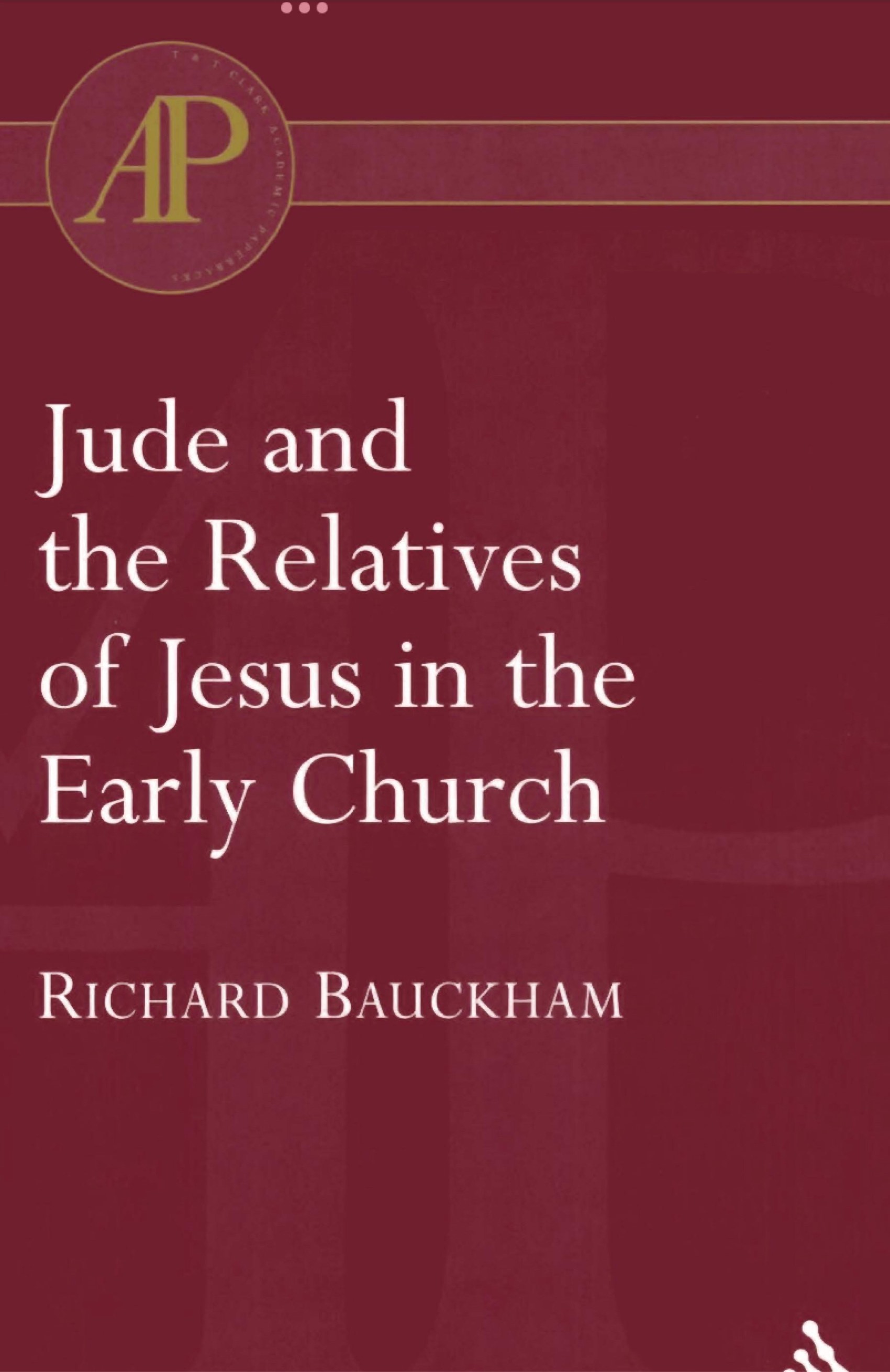JUDE AND THE RELATIVES OF JESUS IN THE EARLY CHURCH
Summary of Jude and the Relatives of Jesus in the Early Church by Richard Bauckham
Jude and the Relatives of Jesus in the Early Church is a scholarly exploration by Richard Bauckham that examines the historical and theological significance of Jesus’ family members—particularly Jude and James—within the early Christian movement. Bauckham provides a detailed reconstruction of their roles, influence, and legacy based on biblical texts, apocryphal writings, and early Christian traditions.
Key Themes and Contributions:
• Historical Roles: Bauckham argues that Jesus’ relatives, including Jude, James, and others often referred to as the “brothers of Jesus,” held prominent leadership positions in the early church, especially in Jerusalem.
• James the Just: The book offers a deep analysis of James, highlighting him as a central figure in the Jerusalem church and an early Christian authority whose leadership shaped Jewish-Christian identity.
• Jude’s Letter and Identity: Bauckham analyzes the Epistle of Jude in the New Testament, exploring its author’s self-identification and the theological implications of his relation to Jesus and James.
• Desposynoi Tradition: The book engages with the “Desposynoi” (relatives of the Lord) tradition in early church history, including how Jesus’ family was remembered and venerated in various Christian communities.
• Family and Apostolic Authority: Bauckham addresses the theological tension between familial ties and apostolic calling, exploring how Jesus’ family transitioned from skepticism to leadership roles in the faith community.
This work contributes significantly to New Testament studies and early church history by shedding light on often-overlooked figures and their crucial influence in the formative years of Christianity.

